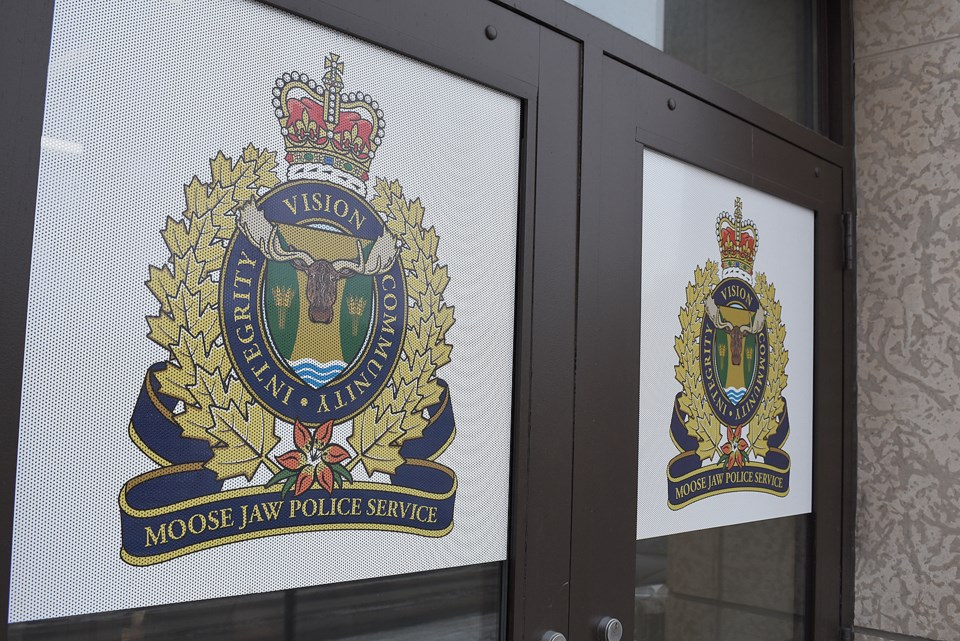Since last March, the Moose Jaw Police Service has received 108 complaints about non-compliance with pandemic-related health orders, with 13 people each given a ticket of $2,800 for disobeying the law.
“When we issue these charges, we certainly want to ensure that they’re bona fide. We also ensure — prior to charges — that we’ve done our due diligence in terms of educating as much as we can, in co-operation with the public inspectors as well, with whom we work very closely,” explained Supt. Devon Oleniuk.
The Moose Jaw Police Service (MJPS) has also responded to two Freedom Rallies, which occurred in January, Oleniuk told the Board of Police Commissioners on Feb. 11. The organization worked with its partners in the RCMP and Regina Police Service to acquire intelligence about these events before preparing a suitable response plan.
The Freedom Rally group has existed for many months and held a similar event in Regina weeks before the Moose Jaw rally, Oleniuk continued. Regina police indicated that people at that event — roughly 30 people in size — were physically distanced, so officers did not lay any charges. However, indications were the rally in Moose Jaw would be much larger.
Oleniuk sent a text message to one of the rally organizers since he wanted to advise about the public orders but did not hear back.
The plan for the Jan. 16 event was to gather at Sunningdale School, but organizers moved the rally to the corner of Thatcher Drive East and Main Street North near Humpty’s Restaurant. Between 60 and 65 people gathered to hear speakers discuss different topics such as masks and pandemic restrictions.
The police ticketed five people for disobeying the 10-person gathering limit. Six extra officers were also called in to ensure there was a “robust police response” on site.
A week later, the MJPS heard several concerns — none officially lodged — from restaurants that rally attendees had visited afterward, with the rally-goers allegedly pressuring servers and refusing to wear masks, said Oleniuk. The restaurants ensured that the attendees were served quickly so they could leave sooner.
“We had one criminal investigation in terms of a threatening allegation that surfaced from that, and that’s being investigated from that,” he continued. “So there was some fallout after this event, so that was very concerning.”
A second Freedom Rally was held a week later, but this involved a convoy of vehicles. The MJPS had nine additional members present, while it also requested five extra officers from the provincial Combined Traffic Services Saskatchewan unit.
The extra manpower was unnecessary, though, since the weather that weekend was terrible, said Oleniuk. About two to four vehicles showed up for the rally, and while the numbers were smaller, the convoy toured the city for a lengthy period.
“The fallout after this was not as significant as the last one,” he continued. “It should be noted, though, that there is considerable resources (used) personnel-wise as well as financially when we do these things, so it’s money well spent … ,” he continued. “We’re pleased to say that we haven’t had a visit since.”
While the police service accepts that people have the right to protest, such demonstrations should follow public health orders and respect the laws, Oleniuk added.
It is resource-intensive to monitor these events, especially since the MJPS never knows what to expect, said Police Chief Rick Bourassa. The organization receives intelligence from other police forces but can’t predict how many people will show up.
“We always hope for the best,” he added, “but prepare for the biggest case scenario, so that’s what we did for both of those cases.”
The next Board of Police Commissioners’ meeting is Thursday, March 9.




